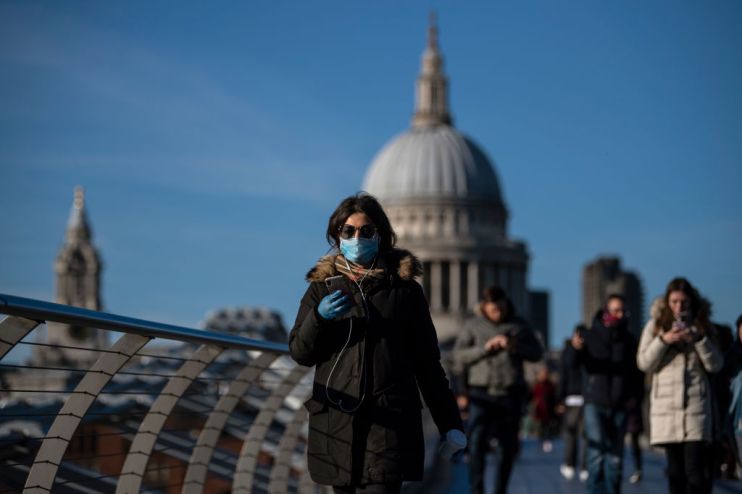London reports zero Covid deaths as cases slump to September levels

London recorded zero Covid-related deaths yesterday for the third time this year, as infections slumped to levels not seen since September.
The daily death toll has previously fallen to nil on 28 March and 27 February, with cases continuing to decline across the bulk of boroughs.
Just 317 coronavirus infections were reported in the capital yesterday — down from a peak of 19,874 on 29 December. It marks the lowest daily increase in Covid cases since 293 were reported on 16 September.
Hospitalisations have also slumped in recent weeks, with 23 patients in London admitted to hospital with coronavirus yesterday.
Eight boroughs including Westminster now have a seven-day case rate below 20 confirmed new infections per 100,000 people a week, according to Public Health England. Kensington and Chelsea is the only London borough that has seen an increase in cases in recent days, with infections up seven per cent yesterday.
It comes as scientists from Imperial College London said this morning that the UK’s rapid vaccine programme is beginning to “break the link” between Covid cases and deaths.
London and the South East saw the sharpest drops in infection rates from February to March, according to the study.
Professor Paul Elliott, director of Imperial’s REACT programme, added: “We have seen a gratifying fall in infections since our last survey in February, with infections dropping by around 60 per cent overall. This is hugely encouraging and shows we’re headed in the right direction.”
Almost 3.26m people in London have received their first dose of a Covid vaccine so far — equivalent to around 36 per cent of the capital’s population.
Prime Minister Boris Johnson confirmed on Monday that the UK is “on track” to ease restrictions according to his roadmap for leaving lockdown.
Pubs and restaurants are due to reopen for outdoor service from 12 April, alongside non-essential shops, gyms and hairdressers.
Johnson insisted London will “bounce back very strongly” from the pandemic once its theatres and artistic sectors can reopen later in the year.
Asked by City A.M. why he had not done more to assist the city, the Prime Minister said: “I happen to think the London economy is capable of bouncing back very strongly and the way to do that is to get people back into the centre, get the shops open again, get people moving again, get the conglomeration effects of a gigantic metropolis like London working again.”